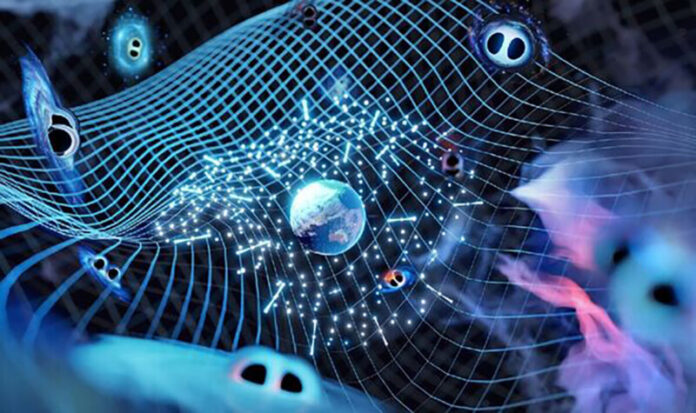
An MTSU Department of Physics and Astronomy fixture every fall and spring semester, Friday Star Parties resume this week with the first of four events.
Professor Eric Klumpe will speak on “Gravitational Wave Background” starting at 6:30 p.m. Friday, Sept. 1, in Wiser-Patten Science Hall Room 102. Free parking can be found behind Wiser-Patten and other nearby lots.
Typically held on the first Friday of the month during the semester, the Friday Star Parties for fall 2023 will feature an assortment of interesting astronomy and physics topics from the veteran faculty.
All Star Parties are free and open to the public. The format is a 30- to 45-minute lecture followed by a telescope viewing by the MTSU Observatory, weather permitting.
Regarding his lecture, Klumpe said it was announced in late June that collaborations of scientists from around the world have detected what is referred to as the gravitational wave background.
“I love teaching about the efficacy of the scientific method and the synergistic cooperation between theory and experimentation,” Klumpe said. “Considering that gravitational waves were predicted to exist by Einstein over 100 years ago, this latest discovery is yet another very dramatic example for me to incorporate into my classes.”
“What makes this more recent discovery unique is that instead of detecting the emission from an isolated source like a black-hole merger, the source seems to be the fabric of space-time itself, hence the name gravitational wave background,” Klumpe added. “Come and learn about this newly discovered phenomenon and how the Milky Way itself was cleverly utilized as a detector of this unique low-frequency hum.”
The fall Friday Star Party schedule also will include:
• Oct. 6 — “Small Worlds of our Solar System,” led by assistant professor Jana Ruth Ford.
• Nov. 3 — “Probing Dark Energy: The Large Synoptic Survey Telescope,” led by professor John Wallin.
• Dec. 2 — Topic to be announced, led by lecturer Irina Perevalova.
For more information about Physics and Astronomy, one of 11 College of Basic and Applied Sciences departments, call 615-898-2130.
















